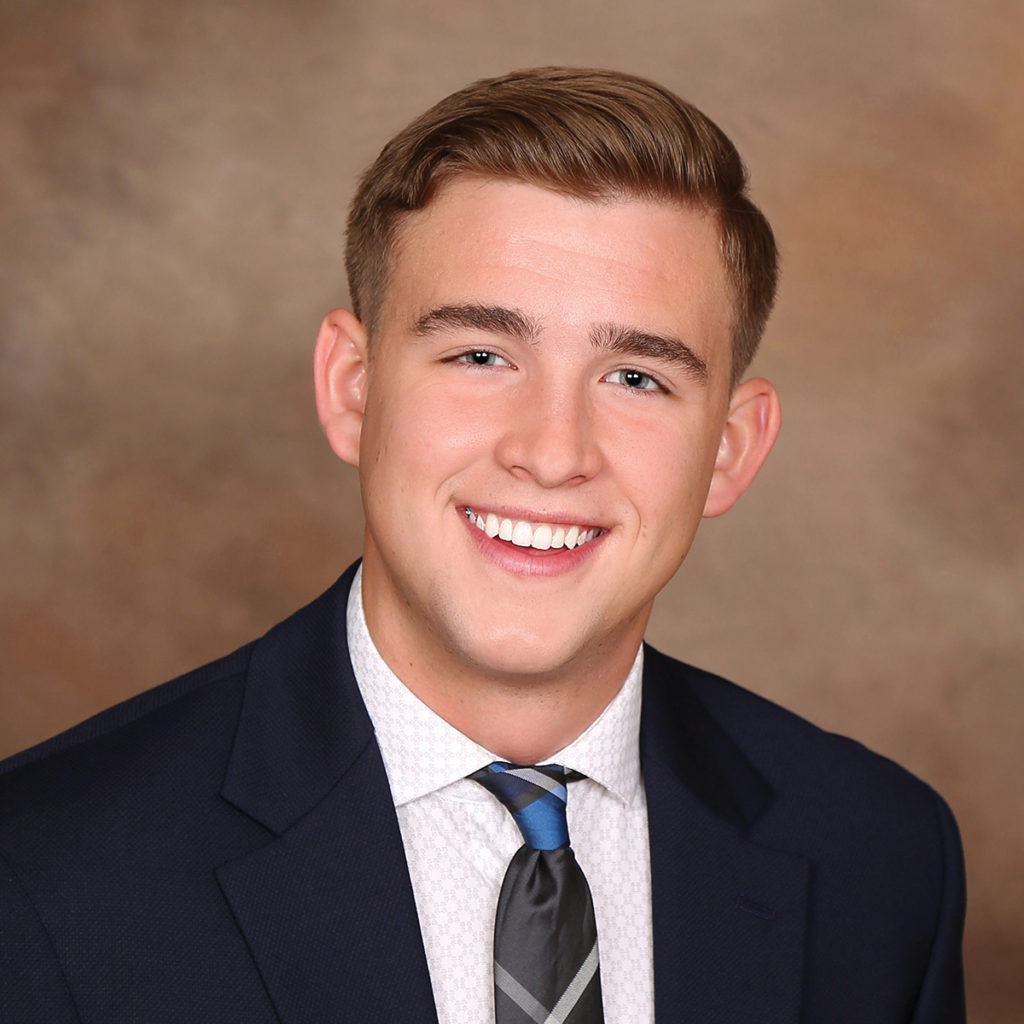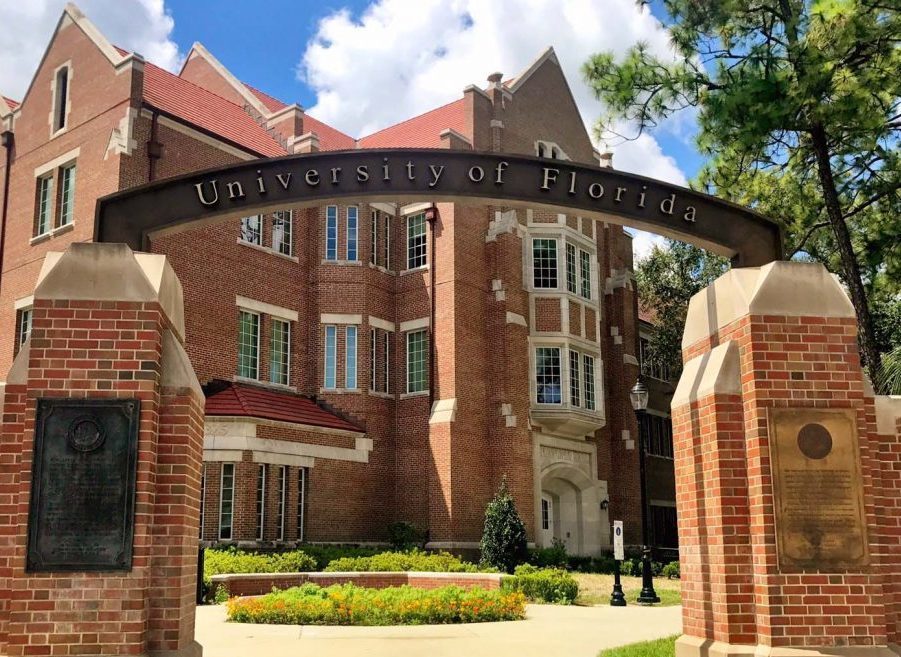Courtesy of UF

Pictured above: Samuel Rechek is the president of First Amendment Forum, a student organization at USF that is committed to promoting the value of free speech on campus.
By Samuel Rechek
In recent years, the Halloween season has become a source of debates surrounding freedom of speech, offensive costumes and university restrictions. This Halloween season, the University of Florida (UF) is playing host to a different kind of free speech controversy.
On Oct. 29, the New York Times broke a story about three UF professors who were supposed to serve as expert witnesses in a lawsuit against Florida Senate Bill (SB) 90, which enacted new restrictions on Florida’s vote-by-mail and ballot drop-off procedures.
When voting rights advocates filed a lawsuit against SB 90, UF professors Sharon Austin, Michael McDonald, Daniel Smith and Jeffrey Goldhagen were asked to serve as expert witnesses in the lawsuit but were denied permission by university administration.
UF’s initial justification for this denial was that the testimony would “‘pose a conflict of interest to the executive branch of the State of Florida.’”
But on Oct. 31, the university changed its position, arguing that it denied the professors’ requests because some were being compensated and because the testimony would be “harmful” to UF’s interests as a Florida institution.
UF’s denial of its professors’ requests to testify violates both its institutional commitment to academic freedom and the professors’ legal right to freedom of expression.
In a statement on Nov. 1, UF President Kent Fuchs and Provost and Senior Academic Affairs Vice President Joe Glover asserted that “UF stands firmly behind its commitment to uphold our most sacred right as Americans—the right to free speech—and to faculty members’ right to academic freedom.”
But precedent emanating from similar disputes suggests that UF failed to recognize what its commitment entails.
According to the U.S. Supreme Court, academic freedom is “a special concern of the First Amendment,” and it protects the right of students and teachers at educational institutions to freely conduct academic investigation without fear of government interference.
The First Amendment’s most famous metaphor, the “marketplace of ideas,” rings most true on college and university campuses, but only if academic freedom safeguards the robust exchange and debate of ideas.
There are limits to this principle, however.
For example, if a government employee is acting within the scope of their job duties or speaking publicly in a way that interferes with their employer’s operations, they can be subject to some limitations.
To see the situation at UF as falling within such exceptions is to severely misunderstand the facts. Voting rights concerns are surely a matter of public interest, and it is not clear at all how speaking against one state law impedes UF’s ability to operate efficiently.
In Lane v. Franks, the Supreme Court ruled that public employees have the very right that these professors were attempting to exercise: “Truthful testimony under oath by a public employee outside the scope of his ordinary job duties is speech as a citizen for First Amendment purposes.” Even if this testimony includes information relating to or obtained as a result of the job duties, this protection still applies.
Given this legal background, it would have been costly for UF to justify its action against these professors. In all likelihood, the courts would likely have come down on the side of free speech.
But on Nov. 5, UF recognized its mistake. Fuchs released another statement indicating that he had asked the relevant offices to “reverse the decisions on recent requests by UF employees to serve as expert witnesses… and to approve the requests regardless of personal compensation.”
UF has a good reputation when it comes to protecting expressive rights on campus. The Foundation for Individual Rights in Education (FIRE), gives UF a “green light” for maintaining no restrictive speech policies.
By comparison, the University of South Florida is a “yellow light” institution.
Perhaps it is because of this good reputation that this break in character has attracted national attention.
However, I think the attention around this controversy also stems from Florida’s making a name for itself in the national free speech debate.
In 2021, the Republican-majority state legislature passed three bills that touched on First Amendment issues, including HB 1, HB 233 and SB 7072, regulating protest, postsecondary education and social media, respectively.
Despite Gov. Ron DeSantis’ and his administration’s commendable commitment to “free speech, open inquiry, and viewpoint diversity,” I think these bills suggest an inconsistency in this pledge: in a conflict between appealing to the party base and upholding the nonpartisan ideal of free speech, ideology will win out.
Is it too much for voters to ask that our political officials and university leaders set aside ideology in favor of a nonpartisan application of the First Amendment? Maybe — so long as we expect them to put this above the interests of their voters.
But herein lies a possible solution: if students and faculty from all ideologies speak out in support of free expression, then it is in politicians’ interest to protect this right for all.
The late Supreme Court Justice Felix Frankfurter wrote that “civil liberties draw at best only limited strength from legal guaranties.” In other words, those who care about liberty must take the Bill of Rights as nothing more than lip service. For our protections to mean anything in day-to-day life, they must be taken up by each of us. Otherwise, they will be violated by those who don’t embrace them and enforced only after such violations have occurred.
In this case, the issue is not whether the professors’ rights were violated. The problem is that the infraction occurred. An end to such infractions is ostensibly the true goal of any robust system of freedom of speech.
So, students and faculty at USF — though we come from a different institution — should care about this story.
Yes, we should commend our sister institution for reversing its mistake. But more importantly, we should take the opportunity to make our support for the First Amendment loud and clear. Doing so is the best way to say to our elected officials and to our own university, ‘This will not happen here.’
Samuel Rechek is a junior political science and philosophy major with minors in history and economics at USF Tampa.




Amazing article Sam! Very well written and to-the-point. It conveys the issue at hand better than many major news outlets! We’re lucky to have 1AF here at USF
Excellent opinion piece.
I do wonder why USF has a “yellow light” from FIRE for having some restrictive speech policies.
One way to turn the light to “green” may be to hire a new USF President and Provost who believes in the value of First Amendment rights and strong tenure.
I think this piece should be forwarded to the USF Board of Trustees who can put additional weigh into these important priorities as criteria for the upcoming future hires.